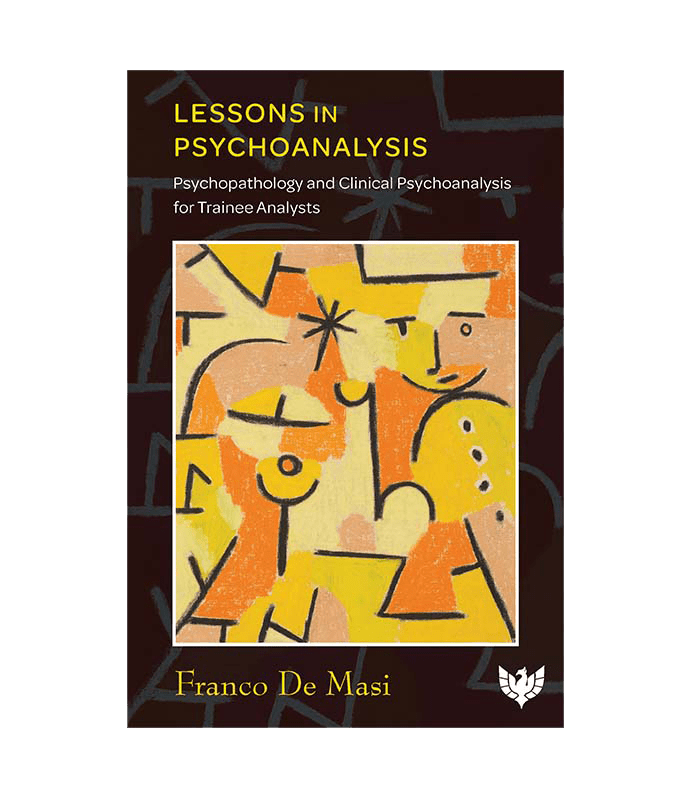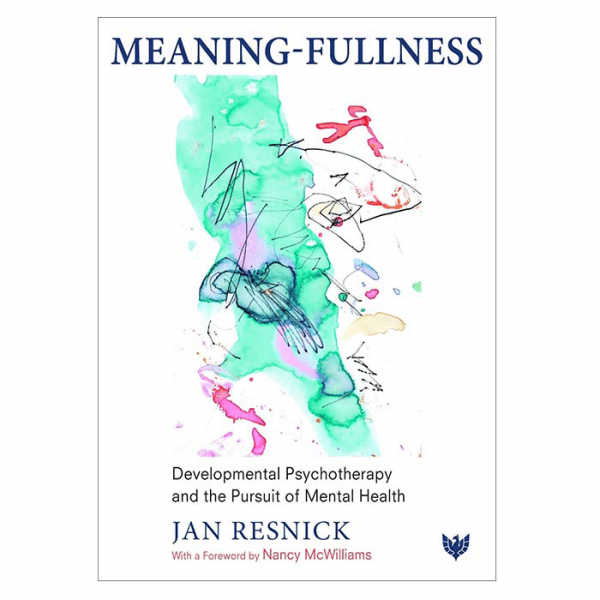Inspired by many successful years of teaching to analysts in training, Franco De Masi has selected the most significant lessons and added a few new ones to provide an enriching discussion of psychopathology and psychoanalytic clinical work. Lessons in Psychoanalysis begins with a general discussion of the scientific status of psychoanalysis, its main theories and models, and the way in which the unconscious registers emotional reality. These are followed by detailed chapters on key topics which relate more closely to clinical work. De Masi begins with the problem of diagnosis in psychoanalysis and the importance of a patient’s clinical history. He then turns his attention to transference and the analytic relationship, which he views as central to clinical work, followed by chapters on the analytic impasse and the use of countertransference. He then deals with other vital themes: regression, anxiety, phobia and panic, trauma, depersonalisation in the various syndromes, melancholic and non-melancholic depression, narcissism, and psychic withdrawal. He concludes with some final considerations of analytic therapy.
De Masi makes clear that analytic concepts are not linear but formed over time from numerous contributions. To demonstrate this, he provides a description of how ideas evolved to form a concept. Following the trajectory enables a fuller understanding and demonstrates the flexibility of analytic concepts to incorporate new contributions without losing meaning. De Masi also includes data from neuroscientific research on certain phenomena to broaden the discussion and demonstrate what is happening in other related fields. His work shows that psychoanalysis has the capacity to be a unitary body which allows various models and theories to coexist even where disagreement may arise.
This book is essential reading for trainee psychoanalysts and students, and highly recommended for qualified professionals who continue to question analytic practice and theory.




 Franco De Masi is a training analyst of the Italian Psychoanalytical Society and former President of the Centro Milanese di Psicoanalisi and Secretary of the Training Institute of Milan. He is a medical doctor and a psychiatrist who has worked for many years in psychiatric hospitals. For the last forty years, he has worked as a full-time psychoanalyst in Milan. He has published several papers in The International Journal of Psychoanalysis, the Rivista Italiana di Psicoanalisi, and other psychoanalytic journals. His main interests are the theoretical and technical psychoanalytical issues related to severely ill or psychotic patients. He is the author and editor of numerous books, including A Psychoanalytic Approach to Treating Psychosis: Genesis, Psychopathology and Case Study (Routledge, 2020).
Franco De Masi is a training analyst of the Italian Psychoanalytical Society and former President of the Centro Milanese di Psicoanalisi and Secretary of the Training Institute of Milan. He is a medical doctor and a psychiatrist who has worked for many years in psychiatric hospitals. For the last forty years, he has worked as a full-time psychoanalyst in Milan. He has published several papers in The International Journal of Psychoanalysis, the Rivista Italiana di Psicoanalisi, and other psychoanalytic journals. His main interests are the theoretical and technical psychoanalytical issues related to severely ill or psychotic patients. He is the author and editor of numerous books, including A Psychoanalytic Approach to Treating Psychosis: Genesis, Psychopathology and Case Study (Routledge, 2020).
Howard B. Levine, Editor-in-Chief, ‘The Routledge W. R. Bion Studies Series’ –
‘Lessons in Psychoanalysis, written by one of the leading contemporary voices in our field, draws upon its author’s long and fruitful experience as a clinician, educator, and theoretician. Starting from the assumption that there is no single explanatory theory that helps us understand the many-sidedness of clinical experience, it introduces readers to a number of key authors and theories, offering hypotheses that can be helpful when applied to specific psychopathological domains. At its heart is the assertion that psychoanalytic therapy avails itself of a natural function of the mind—emotional-intuitive functioning— potentially present in each of us, that allows us to make contact with unconscious processes in our patients and in ourselves.’
Ana de Staal, psychoanalyst, member of the Freudian Psychoanalysis Society, and publisher in Paris –
‘Approximately fifteen years ago, I had the chance to be the first to publish Franco De Masi’s work in French. Since then, I have never stopped publishing his writing. His great psychoanalytic knowledge and methodological competencies, combined with undeniable clinical experience, notably in the field of psychosis, have made him an essential contemporary author. Thanks to the clarity of his thinking, the reader of Lessons in Psychoanalysis will not only be able to return to the fundamentals of practice, but will also be able to access a specifically analytical examination of psychopathology from the best of today’s psychoanalytic clinical work.’
Prof. Heinz Weiss, head, Department of Psychosomatic Medicine, Robert Bosch Hospital, Stuttgart, and member, board of directors, Sigmund Freud Institute, Frankfurt am Main –
‘Franco De Masi’s new book is a milestone in teaching psychoanalysis. It displays the author’s unique capacity to explain basic concepts up to complex clinical issues, like countertransference, trauma, and states of psychic withdrawal. It will be an essential text not only for the psychoanalytic student, but also for those experts who want to deepen and extend their didactic competence. The book also provides an insight into the author’s own clinical work and areas of research, in particular in working with narcissistic, borderline-psychotic, and severely traumatised patients. In my view, an invaluable contribution.’